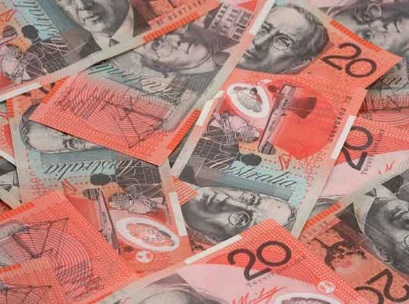
The Australian dollar was unchanged Thursday, buying 69.30 US cents.
Yesterday, the local currency took a fresh knock when a rush of disappointing Chinese economic data swamped what had been a slightly better mood on the Sino-US trade dispute.
The Aussie was lying at 69.30 US cents on Wednesday, having been as far as 69.22 US cents, the lowest since the flash crash of early January.
The last time it spent more than a day at these depths was in early 2016 when it dropped as low as 68.27 US cents.
The latest blow came when surprisingly weak readings on Chinese industrial output and retail sales stirred concerns Beijing needed to do more to stimulate the economy as the trade war with the United States escalates.
Output rose just 5.4 per cent in April, while retail sales grew at the slowest pace since 2003 at 7.2 per cent.
That overshadowed a slight improvement in risk appetite after US President Donald Trump, perhaps in reaction to losses on Wall Street, said the trade war with China was “a little squabble” and insisted talks had not collapsed.
Neither was domestic data helpful, with Australian wages rising a muted 0.5 per cent in the March quarter, to leave annual growth stuck at 2.3 per cent for a third straight quarter.
The Reserve Bank of Australia has long been counting on wages growth to accelerate to help lift inflation
“The RBA base case is that wage growth is expected to gradually improve. In reality it has stopped dead,” said Annette Beacher, chief Asia-Pacific macro strategist at TD-Securities.
This was one reason futures markets are fully priced for a quarter-point cut in the 1.5 per cent cash rate by August with a move in July a 78 per cent probability.
Yields on three-year bonds are well under the cash rate at 1.235 per cent and only just above all-time lows.
“Three-year bond yields have been in a downtrend all year, and are heading to 1 per cent as we expect the RBA to capitulate and cut in both August and November to a 1 per cent terminal rate,” said Beacher.
Government bond futures consolidated recent gains, with the 10-year contract up half a tick at 98.2950 having hit a record peak on Tuesday.
New Zealand government bonds eased back a little with yields up one to two basis points.





